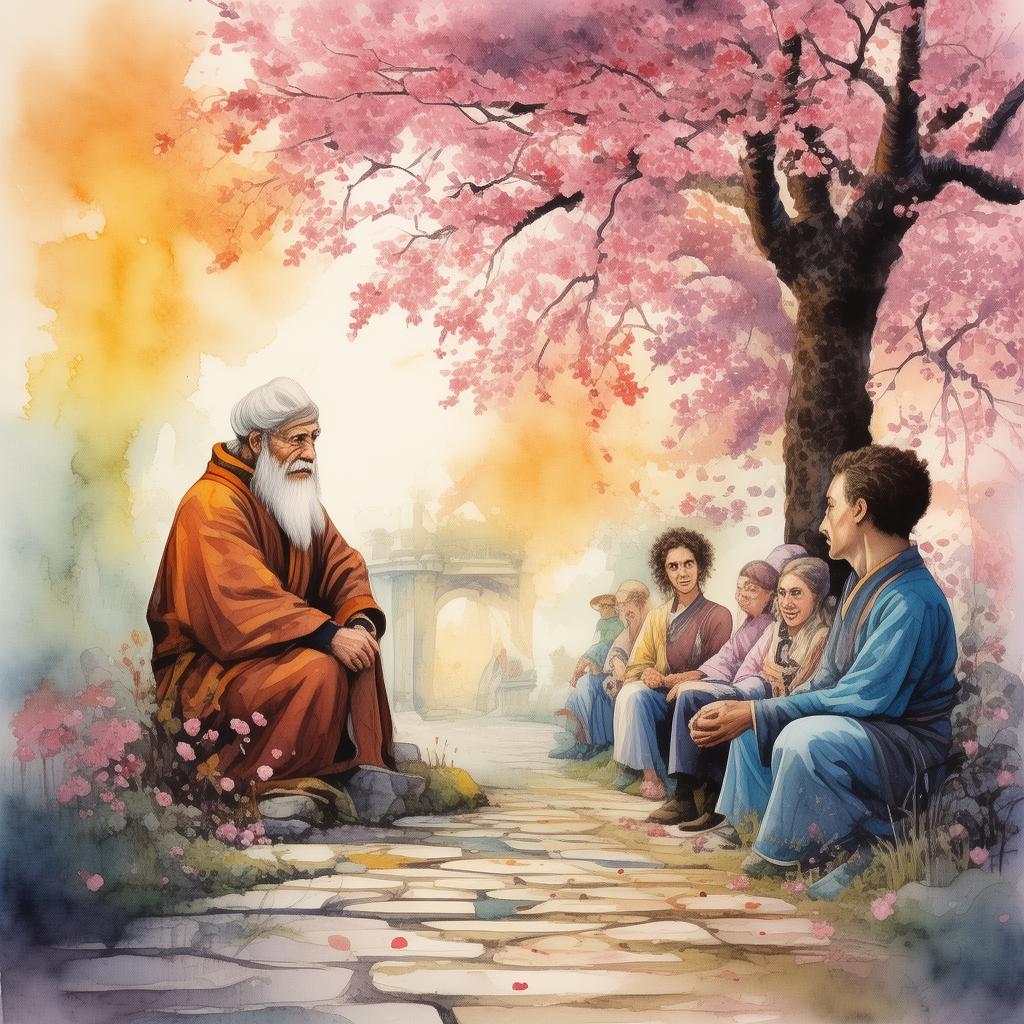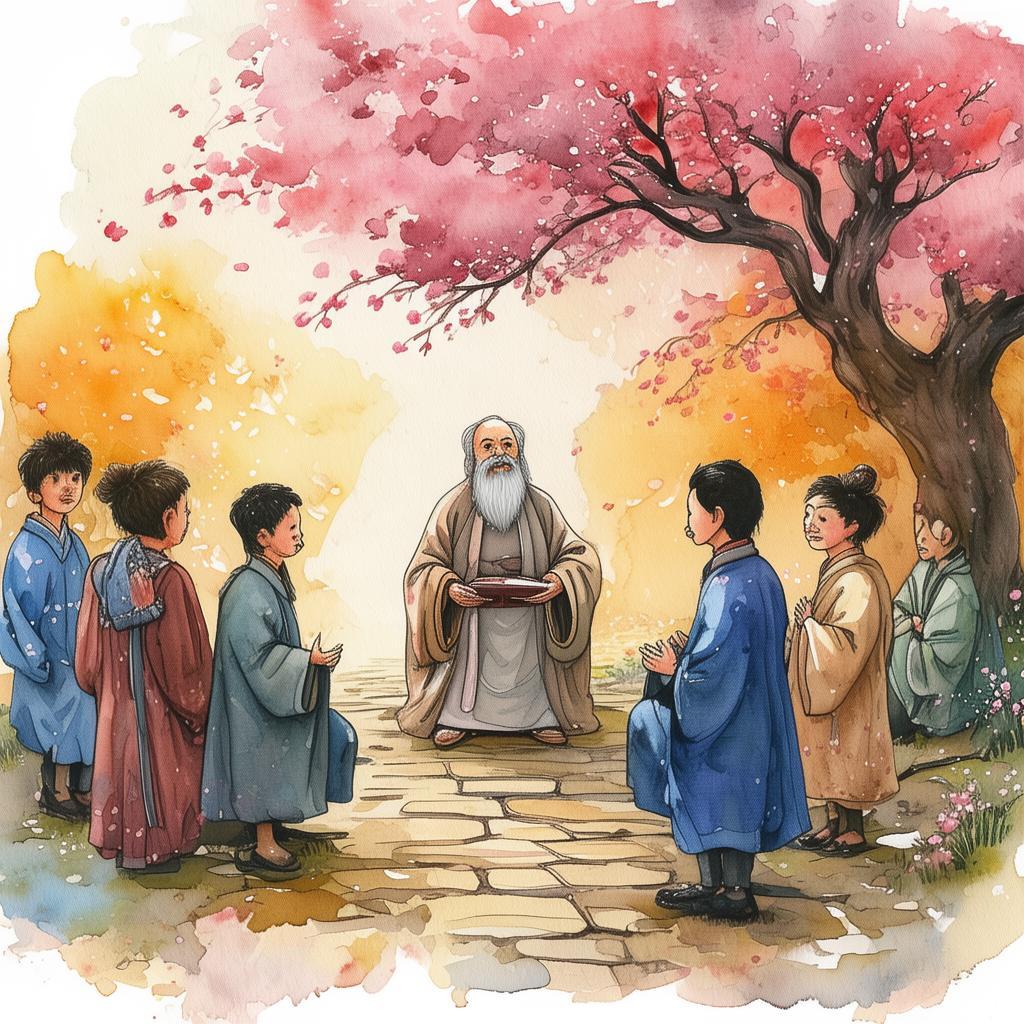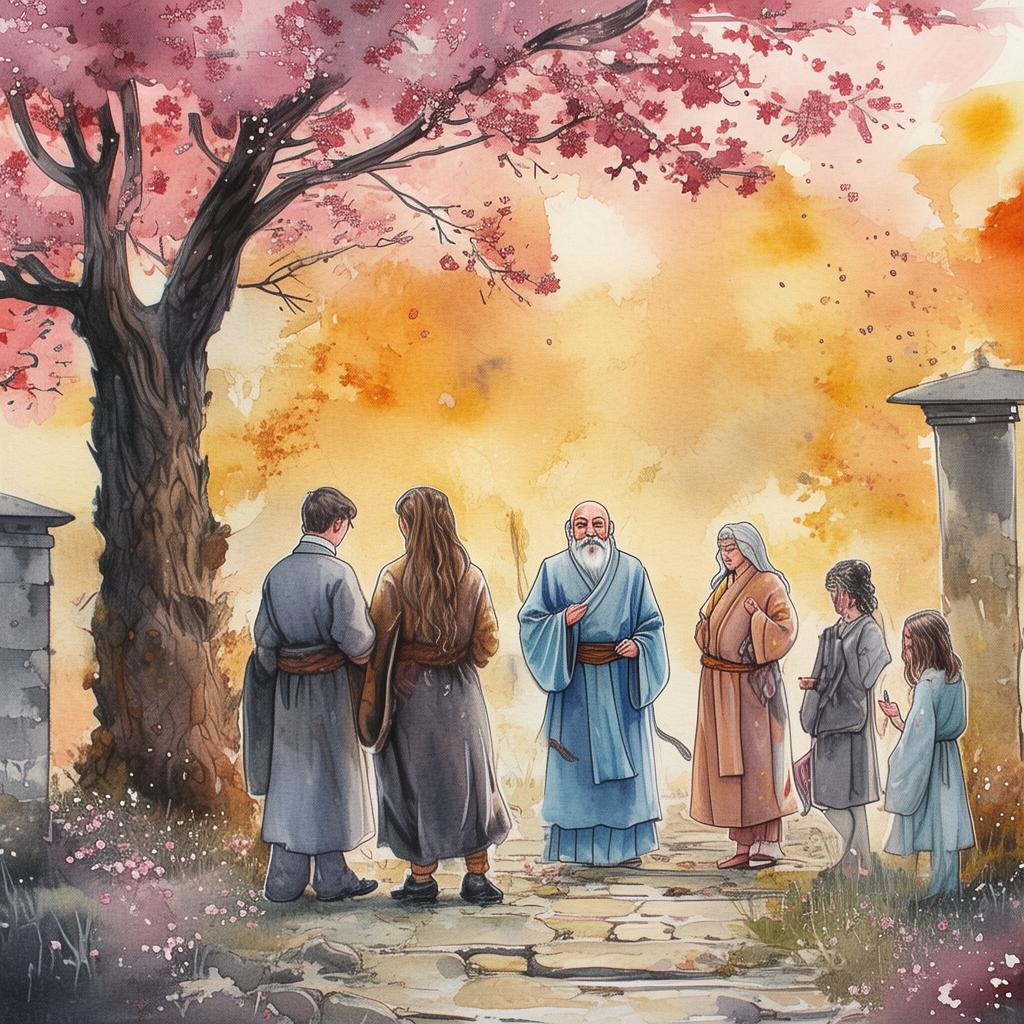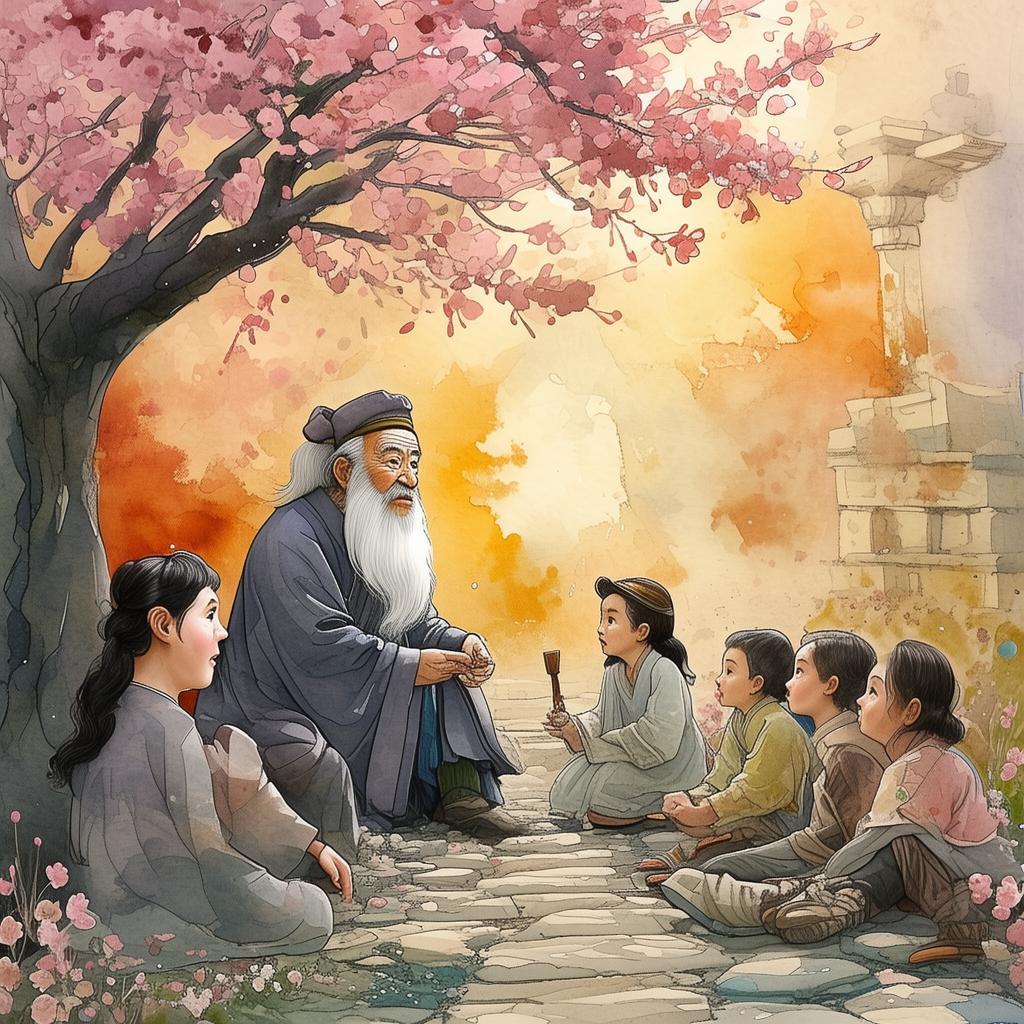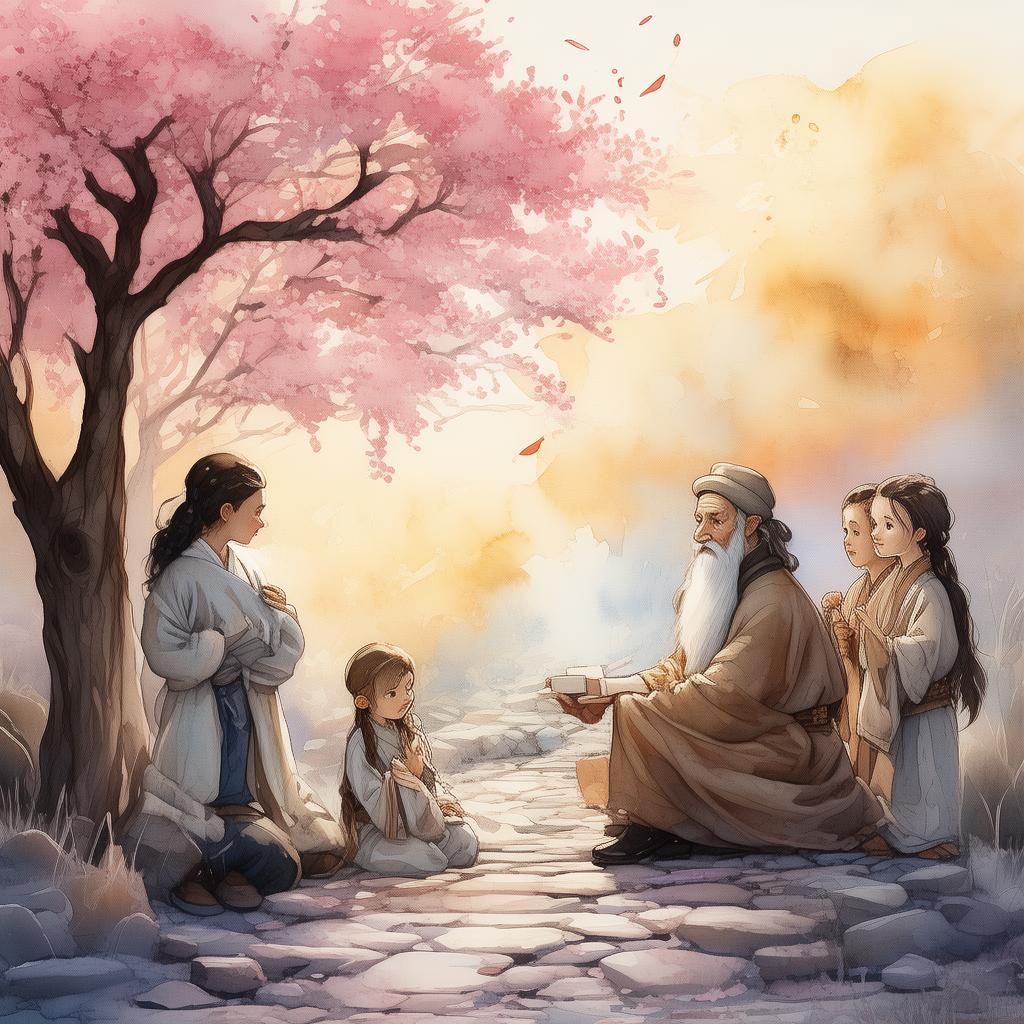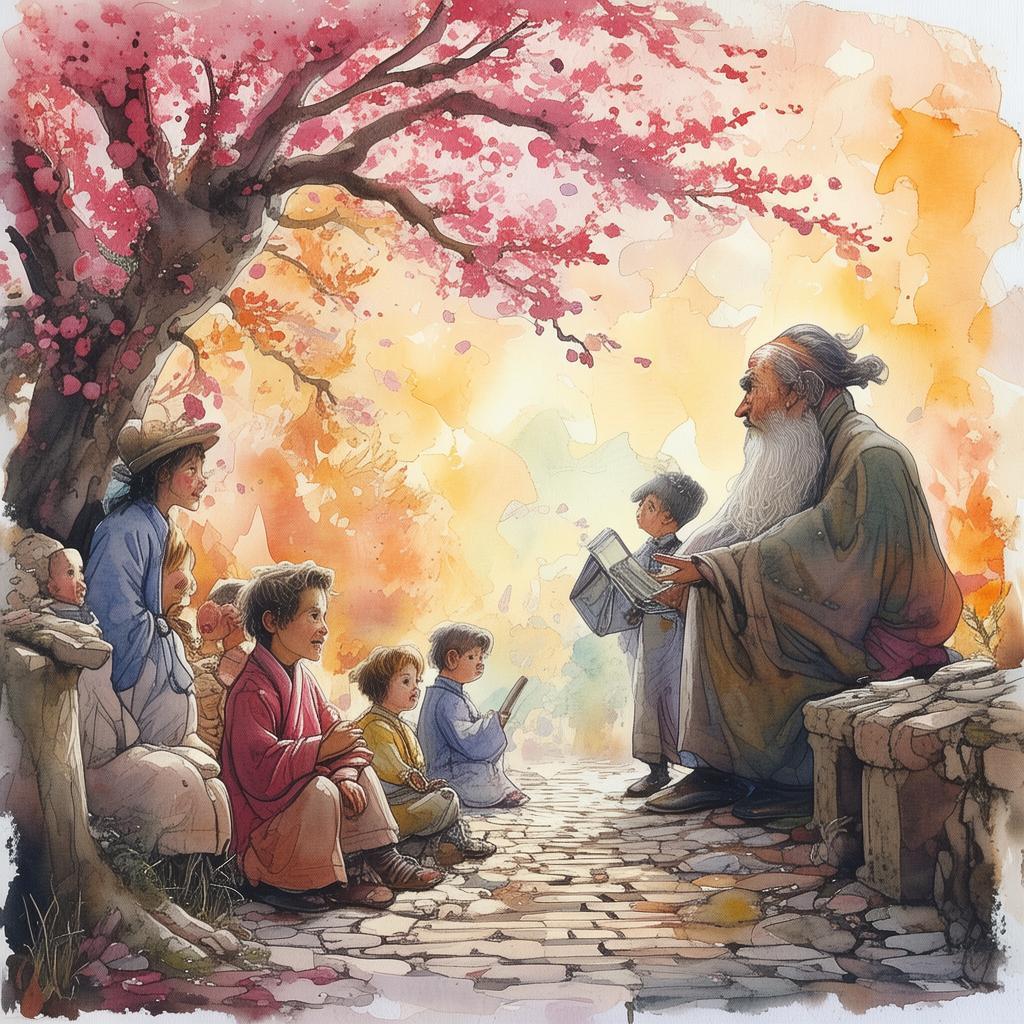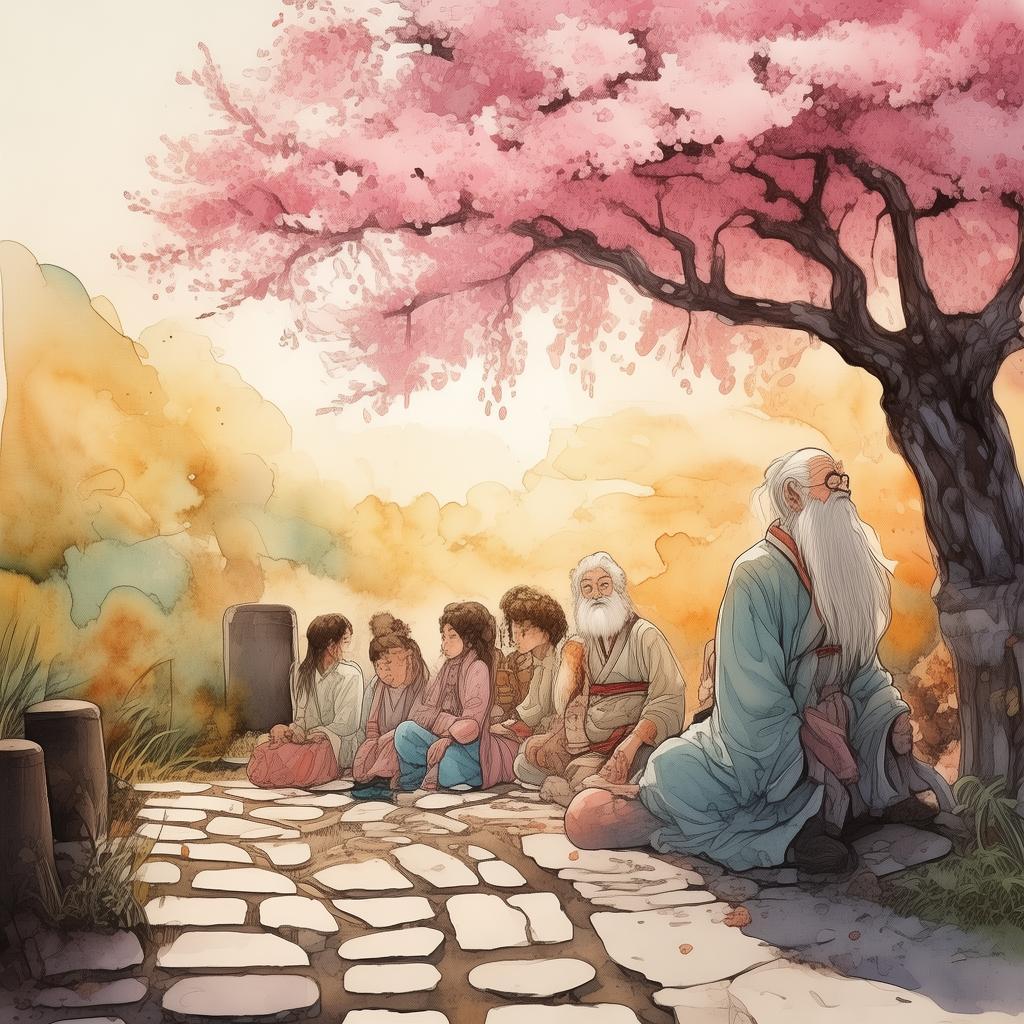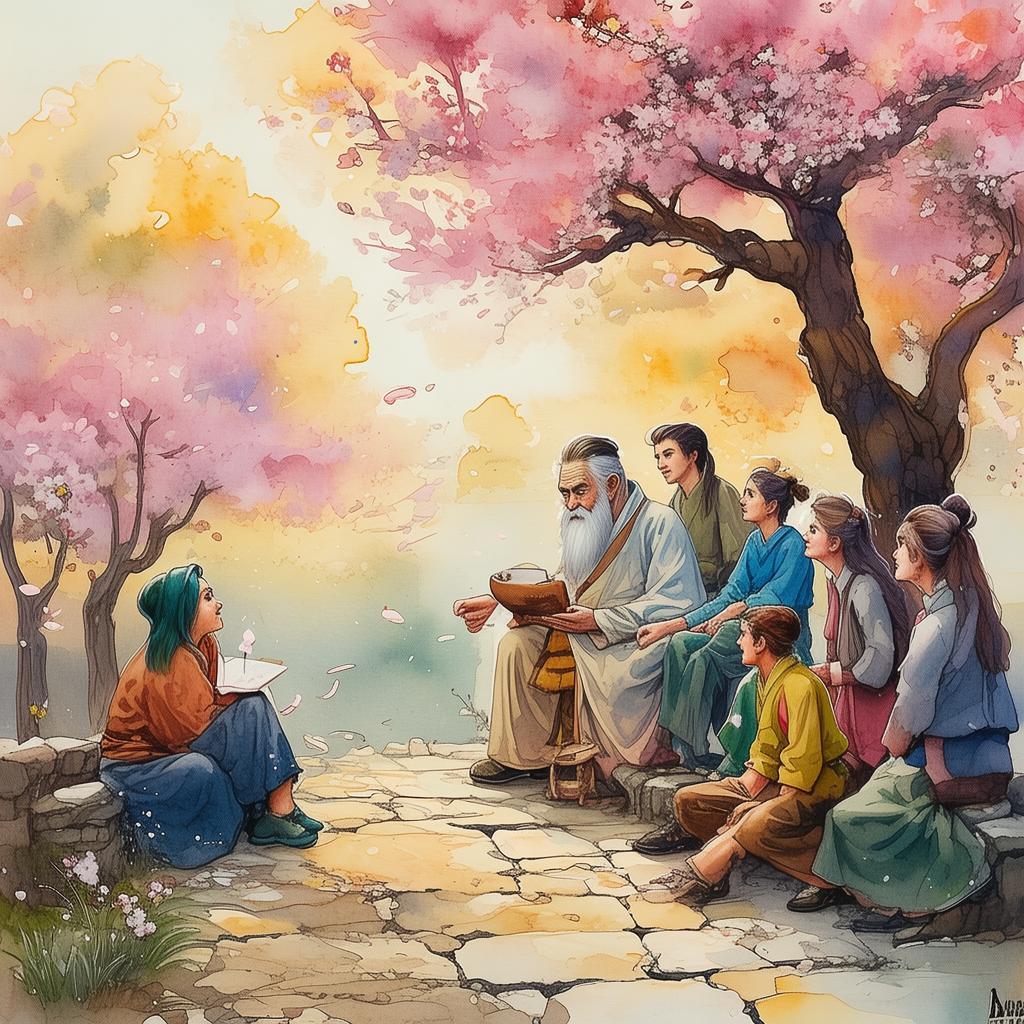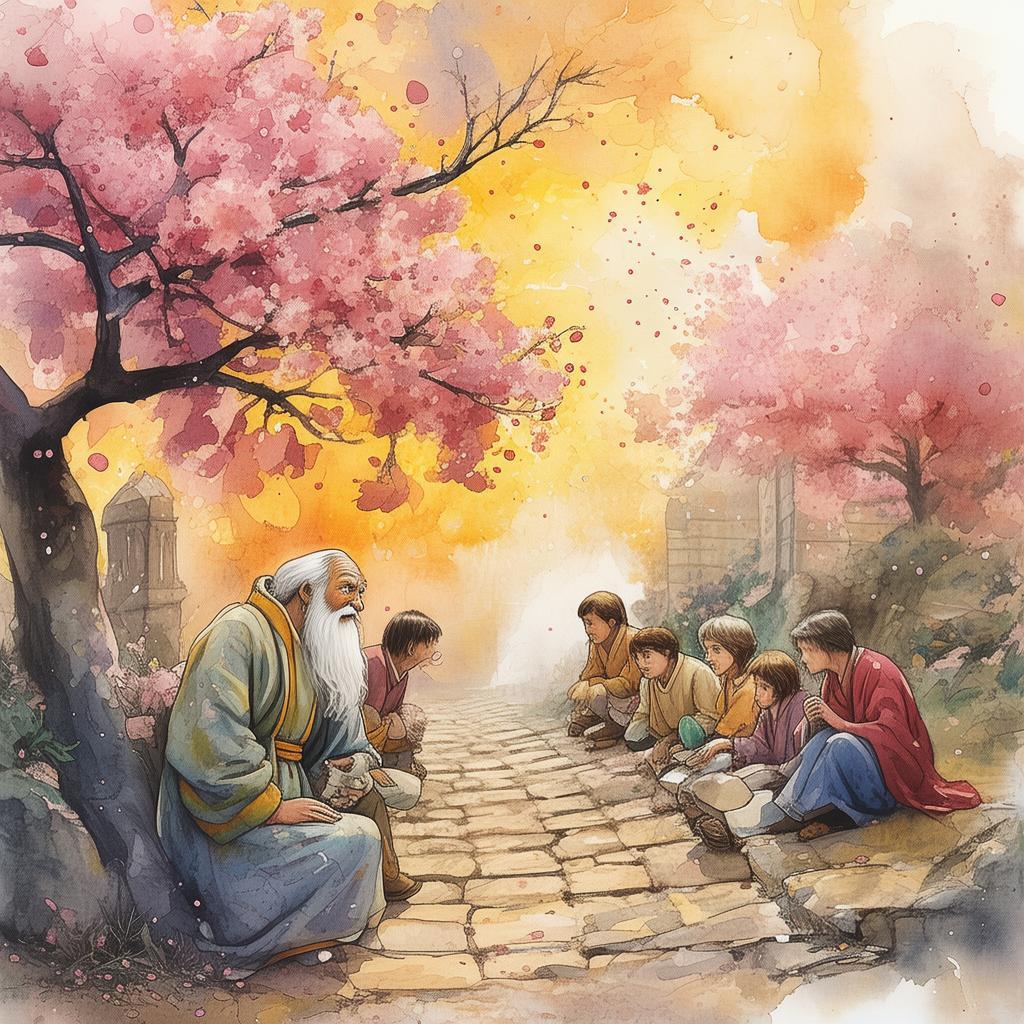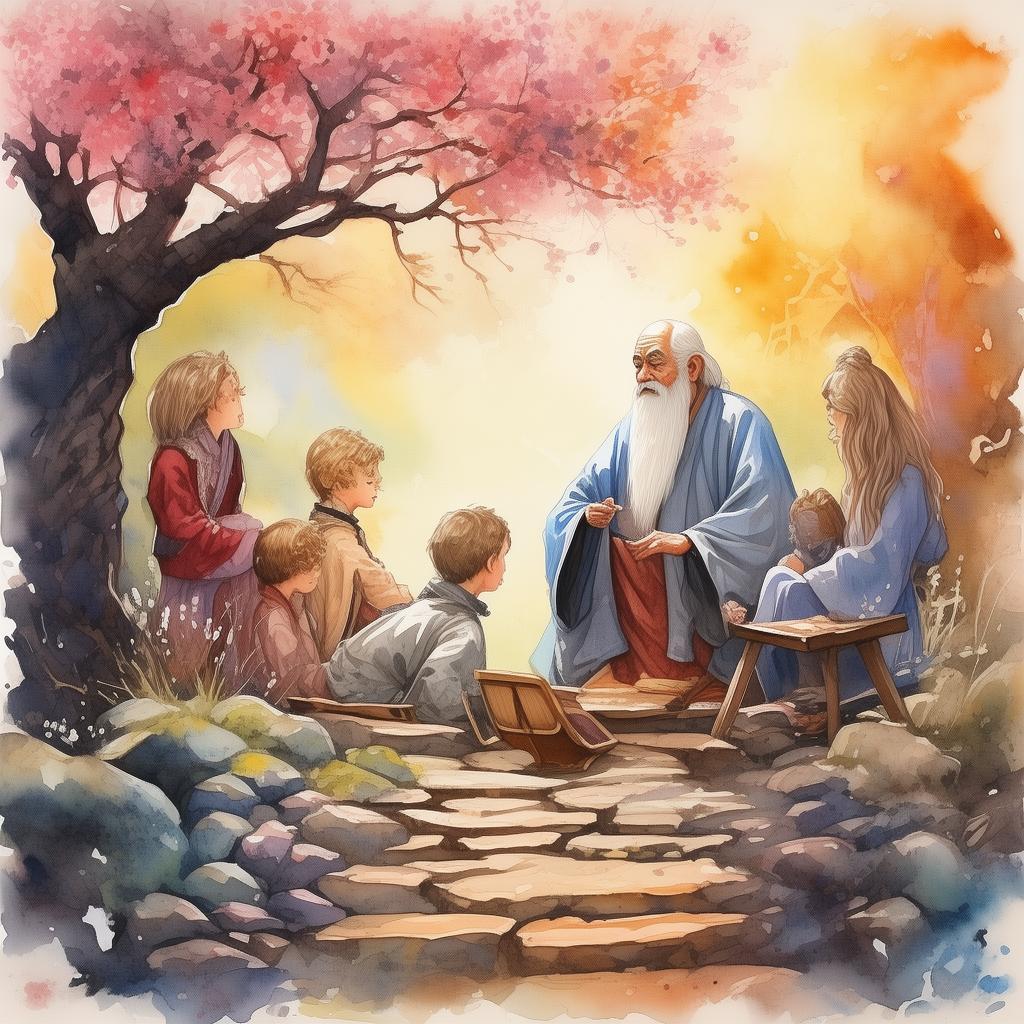The Taste of the Future: A Mindful Journey to Discovery
The sun dipped below the horizon, casting a golden hue over the sleek, futuristic cityscape. In the heart of this urban marvel, a young chef named Liang stood before his kitchen, the air thick with the scent of exotic spices and the promise of culinary innovation. Liang was not just any chef; he was a pioneer in the nascent field of Mindful Gastronomy, a discipline that sought to merge the essence of food with the power of the mind.
In the year 2145, the world had changed dramatically. Technology had advanced to a point where the taste of food was no longer solely a sensory experience. It was an emotional and intellectual journey, where the essence of a dish was not just in its ingredients but in the thoughts and intentions of the chef who prepared it.
The Taste of the Future was a festival that celebrated this new culinary evolution. It was a gathering of chefs and food enthusiasts who believed that the future of food was not merely in the creation of new dishes but in the transformation of the human experience through mindful eating. Liang was among the select few invited to participate in this year's festival.
The festival was a grand affair, with chefs from around the world showcasing their most innovative dishes. Each dish was a testament to the power of the mind. There was the "Silent Symphony," a dish that played music in the mind of the eater, and the "Emotionally Evocative Elixir," a potion that could evoke a specific memory or emotion.
Liang's dish was simple yet profound—a dish he called "The Mindful Melody." It was a dish that was meant to be eaten with the mind, not the mouth. The ingredients were ordinary, yet Liang's preparation was anything but. He had spent years cultivating his ability to channel his thoughts and emotions into his cooking, believing that the true taste of the future lay not in the ingredients, but in the intention behind them.
As the festival began, Liang presented his dish to the crowd. He stood before them, his eyes closed, and began to speak. "This dish is a journey," he said. "It is a journey through the mind, where the taste is not what you taste, but what you feel."
The crowd watched in awe as Liang took a single, perfectly cooked morsel and placed it on his tongue. He closed his eyes, and a moment of silence fell over the crowd. Then, the room was filled with the sound of laughter, tears, and memories. The dish had done what no other dish had ever done—it had brought the crowd together, sharing in the collective experience of their thoughts and emotions.
As the festival progressed, Liang began to notice something extraordinary. The taste of his dish seemed to evolve. The same dish, prepared by different chefs, took on different flavors and emotions. One chef's "Mindful Melody" was a symphony of joy, while another's was a lullaby of sorrow.
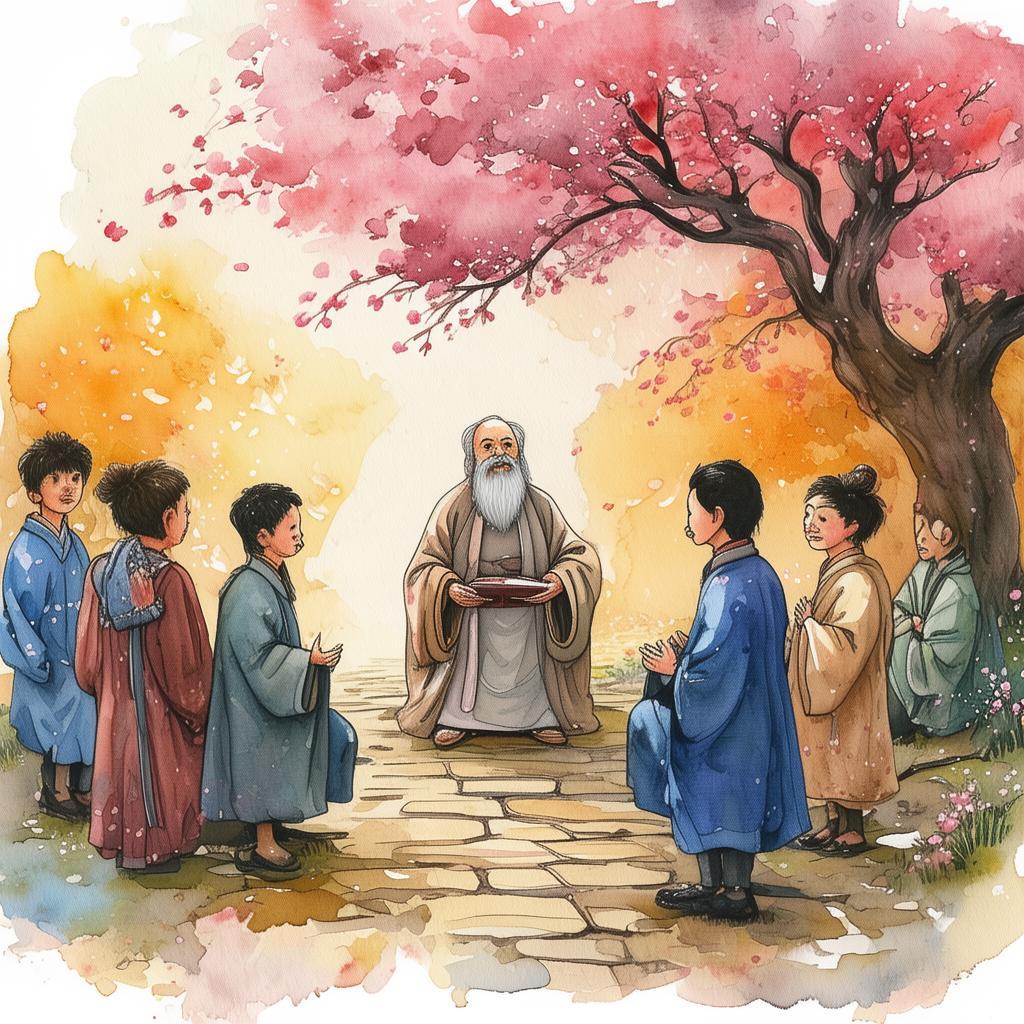
This discovery led Liang to a profound realization. The true taste of the future was not in the dish itself, but in the diversity of human experience. Each person brought their own unique perspective to the table, and it was this diversity that created the true essence of Mindful Gastronomy.
The Taste of the Future was not just a festival; it was a revolution. It was a revolution that would change the way people thought about food, and more importantly, themselves. Liang's journey had shown him that the power of the mind was the key to unlocking the true taste of the future.
As the festival drew to a close, Liang stood before the crowd once more. "The future is not just about new dishes," he said. "It is about new ways of seeing, new ways of feeling, and new ways of being. The future is in our minds."
The crowd erupted in applause, and Liang smiled. He had not only shared his vision of the future but had also inspired others to see the world in a new light. The Taste of the Future had not just been a celebration of food; it had been a celebration of the human mind.
And so, Liang returned to his kitchen, his mind brimming with ideas and possibilities. He knew that the future was not a distant dream, but a present reality, and that the power of the mind was the key to unlocking its true potential.
✨ Original Statement ✨
All articles published on this website (including but not limited to text, images, videos, and other content) are original or authorized for reposting and are protected by relevant laws. Without the explicit written permission of this website, no individual or organization may copy, modify, repost, or use the content for commercial purposes.
If you need to quote or cooperate, please contact this site for authorization. We reserve the right to pursue legal responsibility for any unauthorized use.
Hereby declared.
